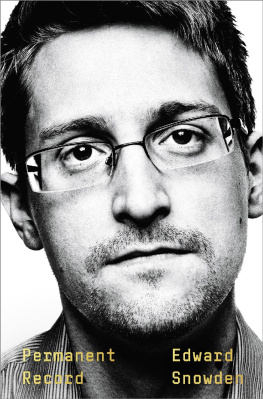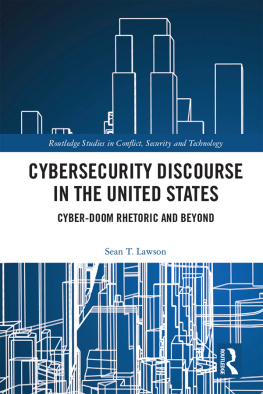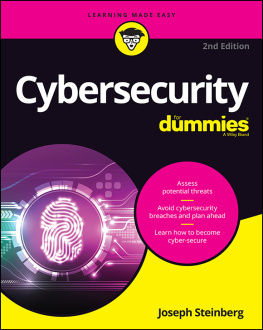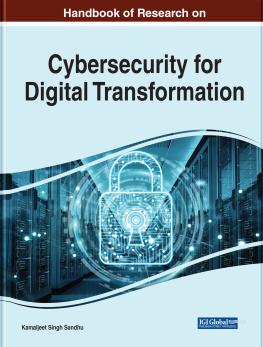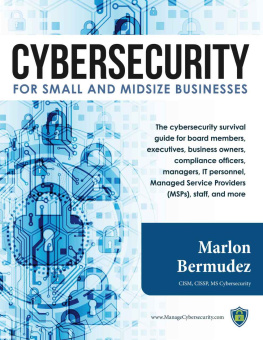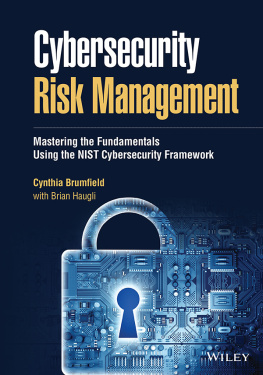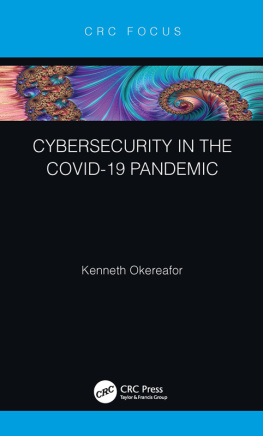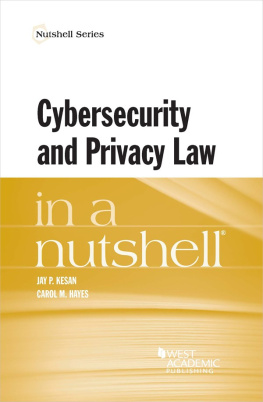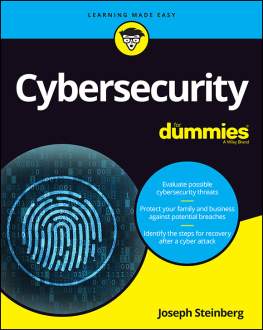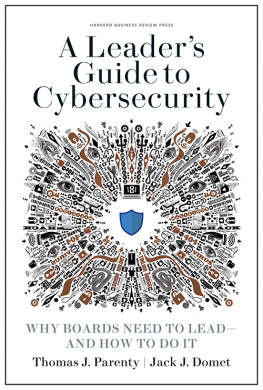CYBER SECURITY
An Ultimate Guide to Cybersecurity, Cyberattacks, and Everything You Should Know About Being Safe on The Internet .
JOHN SNOWDEN
COPYRIGHT
This document is geared towards providing exact and reliable information with regard to the topic and issue covered. The publication is sold with the idea that the publisher is not required to render accounting, officially permitted or otherwise qualified services. If advice is necessary, legal or professional, a practiced individual in the profession should be ordered. - From a Declaration of Principles which was accepted and approved equally by a Committee of the American Bar Association and a Committee of Publishers and Associations.
In no way is it legal to reproduce, duplicate, or transmit any part of this document in either electronic means or in printed format. Recording of this publication is strictly prohibited, and any storage of this document is not allowed unless with written permission from the publisher. All rights reserved. The information provided herein is stated to be truthful and consistent, in that any liability, in terms of inattention or otherwise, by any usage or abuse of any policies, processes, or directions contained within is the solitary and utter responsibility of the recipient reader.
Under no circumstances will any legal responsibility or blame be held against the publisher for any reparation, damages, or monetary loss due to the information herein, either directly or indirectly. Respective authors own all copyrights not held by the publisher.
The information herein is offered for informational purposes solely and is universal as so. The presentation of the information is without contract or any type of guarantee assurance.
CONTENTS
Introduction
Cybersecurity is a sweeping the world by storm, with a number of the greatest & most advanced companies in the world falling victim to cyber-attacks in just the most recent 5 years. Against that backdrop, truly personal and vulnerable information like social security numbers were definitely consumed by the Equifax hack, affecting much more than 145 million people. Regrettably, so long as computers exist, we are in danger of getting the electronic data of ours compromised as well as manipulated. Nevertheless, residing in the electronic age is not all that scary, especially in the case that you know what you're doing.
Cybersecurity will be the shelter of internet-connected strategies, such as hardware, software, and data from cyberattacks. In a computing context, security comprises actual physical protection and cybersecurity -- both are employed by businesses to guard against unauthorized access to info centers and other computerized systems. The goal of cybersecurity is restricting risk as well as protect IT home from attackers with malicious intent. Info security, designed to always keep the confidentiality, integrity, and availability of advice is a subset of cybersecurity.
Best methods might, and should, be implemented by large and small organizations, employees, and individuals. One of the most annoying ingredients of cybersecurity would be the continuously changing characteristics of security risks and seasoned persistent threats (APTs).
The conventional strategy is still focusing resources on crucial system parts and guard against the greatest recognized threats, that suggested giving elements undefended without defending approaches against less unsafe risks. To cope with the existing atmosphere, advisory companies are marketing an adaptive and proactive additional approach.
The National Institute of Standards and Technology (NIST), for example, recently issued updated criteria in its risk assessment framework that recommend a difference toward frequent monitoring in addition to real-time assessments. Unit 1.1 of the Framework for Improving Critical Infrastructure was released in April 2018. The voluntary Cybersecurity Framework (CSF), produced to be utilized with the banking, communications, defense, and energy industries, is utilized by all sectors, including federal and state governments. President Donald Trump issued an executive order mandating that federal companies followed the NIST CSF in May 2017.
Cybersecurity measures must permanently be implemented to safeguard the info of small and large organizations & people. Though sizable security breaches will be individuals that typically get publicized, small businesses continue to need concerning themselves with the protection posture, as they may become the aim of phishing and viruses.
It is truly critical because it can protect an organization's s info property from electric attacks, which could damage the group or perhaps folks providing placed in the wrong hands. Medical, government, corporate, and financial records all hold private information. Security incidents are competent to lead to losses in the terminology of standing, cash, theft of info, deletion of data, and fraud.
Cybersecurity aids in preventing data breaches, identity theft, and ransomware hits and assisting with risk control. Whenever a business has a strong sensation of network security and a very efficient incident response program, it can prevent and mitigate cyberattacks. The method for remaining in touch with revolutionary technologies, security trends, and dangerous intelligence is a hard task.
Chapter One:
What Is Hacking?
When you think of hacking, you may imagine something along the lines of someone violently smashing a keyboard, zooming in on things while controlling someone else's computer, and saying things like "I'm in," or, "hack engaged." Or maybe the word hacking makes you think of breaking into someone's Instagram account.
The term "hacking" has preconceived connotations, and most people don't completely understand the whole idea that goes into the hacking method. Hackers have a legendary reputation for that. Yet there's a hacking side that most people don't know about: ethical hacking. You don't hear about the ethical hacking coverage, but there are people out there with the same job description battling the malicious hackers every day, and they get the bad rep.
The well-known term "hacking" refers to attempts to obtain unauthorized access to data or the system. So, yes, technically, breaking into your ex's Instagram to read their DM's is a type of hacking, but the term applies to someone with technological expertise in the field of hacking. Humans not only try to obtain entry to accounts but also to deter someone else from obtaining unwanted access.
A History of Hacking
Hacking has been around since as early as the 1960s when, in 1961, a group of MIT students hacked their model trains hacking to modify their functions. That is where the term comes from. The term hacking is not even directly related to computers! Originally, hacking meant to explore and improve something.
In the 1970s, phone hackers, or "phackers," made their debut when they exploited phones' operational characteristics to gain access to free phone calls, although they were fairly rare. At the time, computer hackers were not yet popular because so few people had personal computers.
This changed in the 1980s when personal computer use gave birth to the first computer hackers. This is no surprise since there is always someone out there willing to mess with the product to their advantage when there's a product. Likewise, when there's someone to mess with the product, there is someone to protect it. The birth of computer hacking led to the birth of ethical hacking as well. The '80s was the decade we first saw hackers breaking into systems to use them for personal gain. This new type of crime naturally called for new legislation. In 1986, the Federal Computer Fraud and Abuse Act were first written. The Act made it a crime for anyone to access a computer used by a financial institution, a government agency, or any organization involved in foreign commerce or communication. This was mainly prompted by the increase in PC use by the general public.


